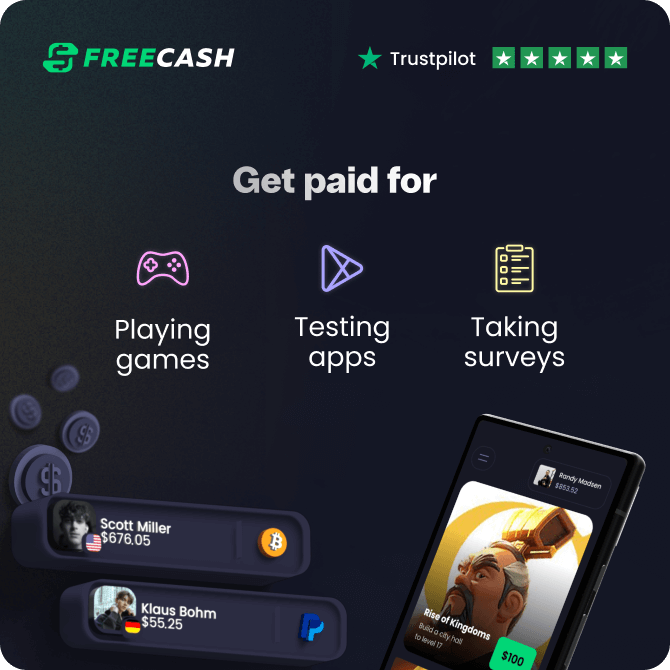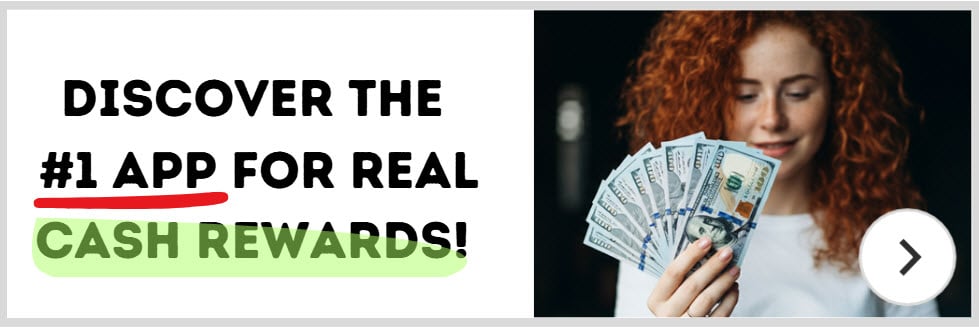
Welcome to my Dessert Crush!
Mobile games that promise easy money are everywhere.
Developers know that people are drawn to the idea of earning hundreds of dollars just by tapping their screens.
It sounds too good to be true—and in most cases, it is. The latest entry in this genre is Dessert Crush, a puzzle game that swaps candies and cakes for supposed piles of cash.
But is it possible to get paid just for clearing donuts and ice creams off a shelf?
Or is this just another exploitative trick wrapped in colorful graphics? Is it legit or fake?
Let’s break it down step by step.
👉 Before you leave, click here and discover my favorite app that pays for playing games!
What Is Dessert Crush?
Dessert Crush is developed by Jumah Ayed Marzouq Abusbaitan, an individual developer based in Jordan.
At the time of writing, the game has crossed 10,000 installs on Google Play.
That number might sound modest compared to giant apps with millions of downloads, but in this niche of “money-making puzzle games,” it’s already enough to lure in plenty of curious players.
The game positions itself as a cash reward app disguised as a casual shelf-style puzzle.
When you launch Dessert Crush for the very first time, you’re greeted with what looks like a marketing fever dream.
A woman in red flashes across the screen, holding stacks of banknotes while virtual cash rains down in the background.
Front and center is a giant number: $500. It flickers back and forth with bold letters asking, “How to get $500 for free?”
The instructions are almost comically simple:
- Earn money
- Extra money
- Enjoy your money
That’s it. No small print, no disclaimers, no realistic explanation of how or why anyone would pay you. Just the promise of free cash for eliminating desserts on your phone.
How Does Dessert Crush Work?
On the surface, the gameplay is straightforward. You’re presented with a shelf full of colorful desserts—cakes, donuts, ice cream cones, and similar items.
The rules are simple: tap three identical desserts to eliminate them. Clear enough items, and you progress through the levels.

This reward platform is going viral! Cash out via PayPal, Visa, Gift Cards, and in-game currencies - Click here to find out how to generate an extra $10+ per day!

But here’s where things get “interesting.” Mixed in among the desserts are cash notes.
You place them on the shelf like any other item, waiting to be matched. When you match three banknotes, you receive a Lucky Reward notification.
In fact, your very first “reward” happens right at level one. Eliminate three banknotes, and the game proudly flashes a $22.28 payout.
The claim button shines, practically begging you to press it. At this point, many players believe they have actuallymade a profit. After all, a real dollar amount is showing up on the screen—what else could it mean?
But it’s all smoke and mirrors.
When you click “Claim,” the game takes you to the Cash Out page, encouraging you to enter your payment information.
This could mean your PayPal email, bank details, or other sensitive data. And this is where a major red flag appears.
The Danger of Sharing Your Data
Dessert Crush doesn’t just flash fake payouts—it asks you to hand over personal financial information on nothing more than blind trust. That is incredibly risky.
Unlike legitimate earning platforms, this app is in early access on Google Play, meaning it hasn’t even gone through full community vetting.
There are no verified reviews to check, no track record of real payments, and no guarantee that your data won’t be misused.
By entering your bank or PayPal details here, you’re exposing yourself to potential data privacy violations.
At best, your details could be harvested and ignored. At worst, you could be opening the door to phishing, unauthorized transactions, or identity theft. In an environment where the developer is already making false promises about payouts, trusting them with sensitive data is reckless.
If there’s one takeaway from this review, it’s this: do not share your payment information with Dessert Crush.
The Illusion of Progress
Dessert Crush tries to keep players hooked with a simple milestone: collect 3,000 desserts to cash out.
That sounds achievable. After all, in a shelf-style matching game, eliminating items happens quickly. Surely after a few days of casual play, you could hit 3,000.
And once you do, that $500 must be yours, right?
Not so fast.
The catch is that there is no actual tracking system in place. The game doesn’t keep an honest count of desserts eliminated.
There’s no visible progress bar that updates reliably. The “3,000 items” requirement is nothing more than a moving goalpost.
Even if you somehow manage to eliminate thousands of items, the game will simply ignore your progress when it comes time to request payment.
This is classic bait-and-switch. The goal is deliberately unreachable, ensuring you stay stuck in the system for as long as possible without ever receiving a payout.
The Ad Trap
If you’ve read this far, you might be wondering: What’s in it for the developer if they never actually pay anyone? The answer lies in advertising revenue.
Every time you claim a supposed “cash reward,” you’re forced to watch a video ad. At first, it feels harmless—just a few seconds to double your fake payout or secure your “bonus.” But it quickly becomes repetitive and exhausting.
By level two, you clearly see the pattern. Cash items regularly appear on the shelf, and each time you eliminate them, the game shows you a payout notification. The reward numbers look enticing—$5 here, $10 there—but in order to“claim” them, you have to sit through yet another ad.
And the ads aren’t random. Many of them are for other fake cash games, creating a closed loop of deception. Countless versions of the same promise present themselves to you: eliminate items, watch advertisements, and earn free money. In reality, the developer is the one making money, while you are not.
This is how Dessert Crush monetizes your time. It tricks you into thinking you’re playing toward a financial goal, when in fact you’re just generating ad revenue for someone else.
Does Dessert Crush Actually Pay?
The short answer is no.
There is no record of Dessert Crush ever paying a single player real money. The requirements to cash out are fake, the progress tracking doesn’t exist, and the payout notifications are nothing more than programmed illusions.
Even if you were to somehow “meet” the requirements, the app is in early access with no payment infrastructure in place. There’s no support, no transparency, and no evidence of legitimacy.
The harsh reality is that the $22.28 you see after your first level—and the many payouts you’ll “earn” after that—are entirely fictional. The game has no intention of paying anyone.
Conclusion
Dessert Crush is a textbook example of how fake cash reward games exploit players. It hooks you with flashy visuals, dangles unrealistic payouts, and pressures you into sharing sensitive data. Then, it locks you in an endless cycle of ads, wasting your time while the developer profits.
The promise of “How to get $500 for free” is nothing more than a marketing trick. There is no free money here—only empty promises and potential privacy risks.
If games like Dessert Crush tempt you, remember this: legitimate earning apps exist, but they never promise hundreds of dollars for trivial tasks like tapping desserts. Real platforms are transparent, slow-earning, and upfront about how payouts work.
Dessert Crush, on the other hand, is pure illusion. Your best move is to avoid it entirely, protect your data, and save your time for something truly rewarding.


